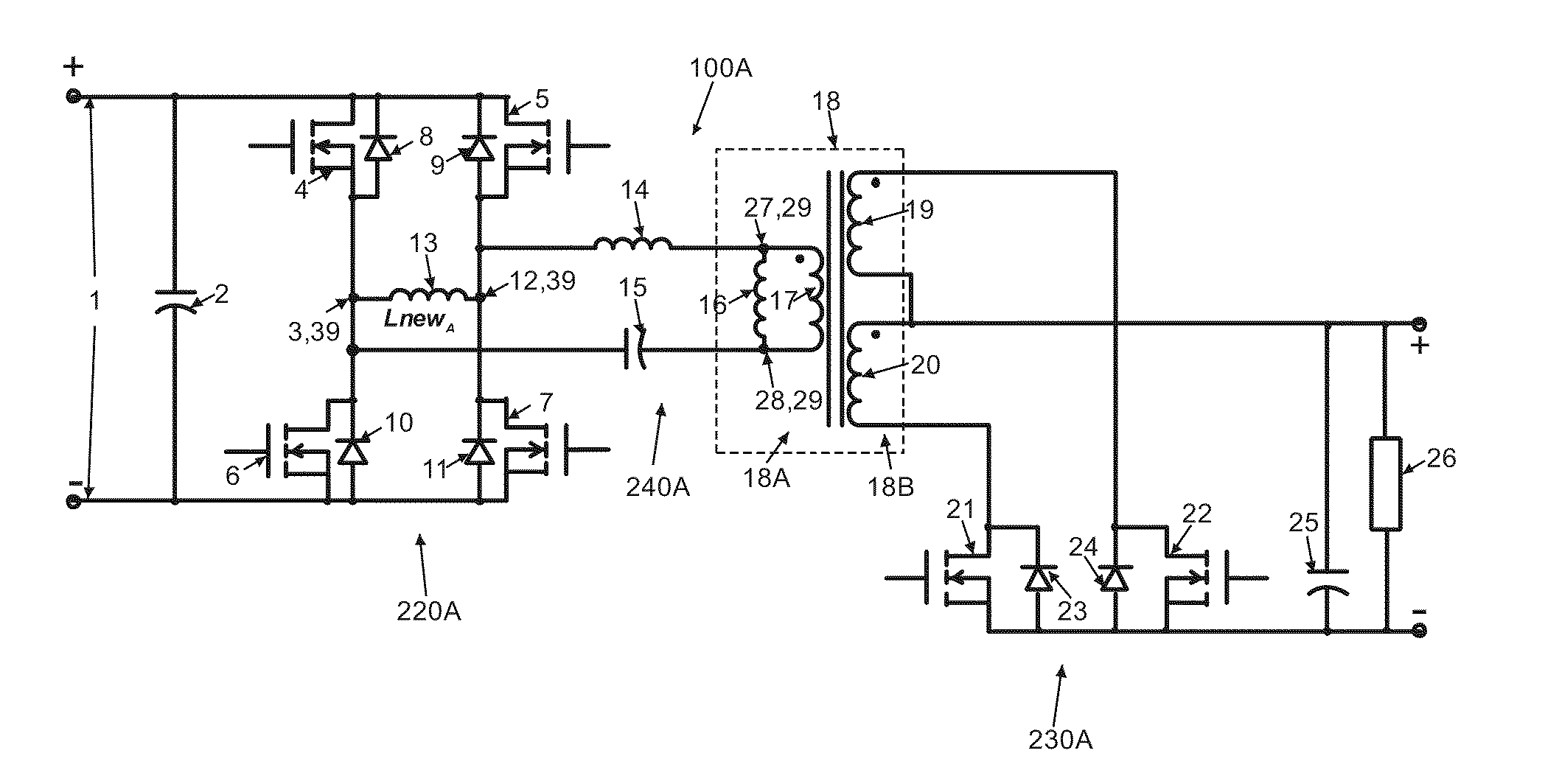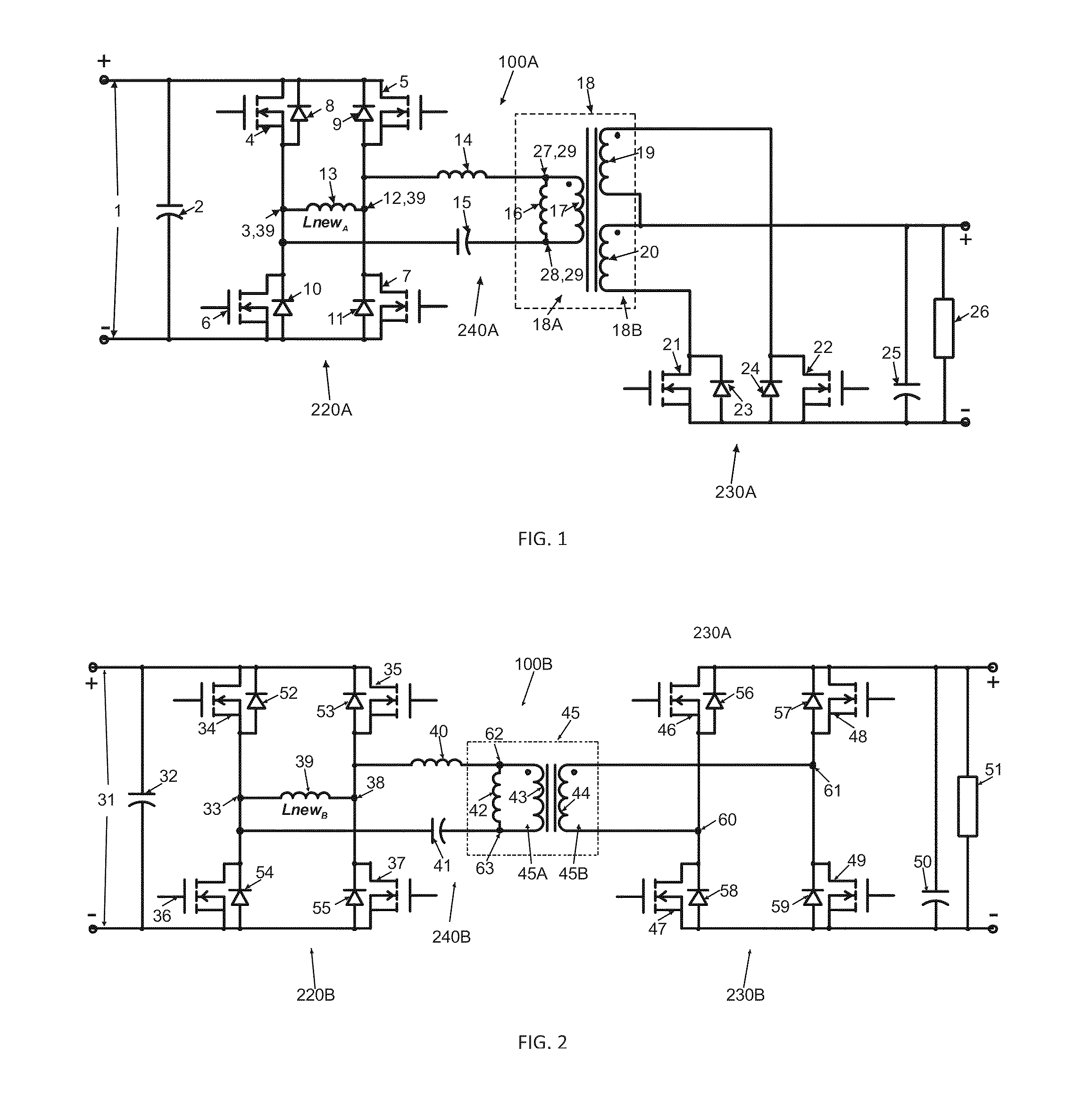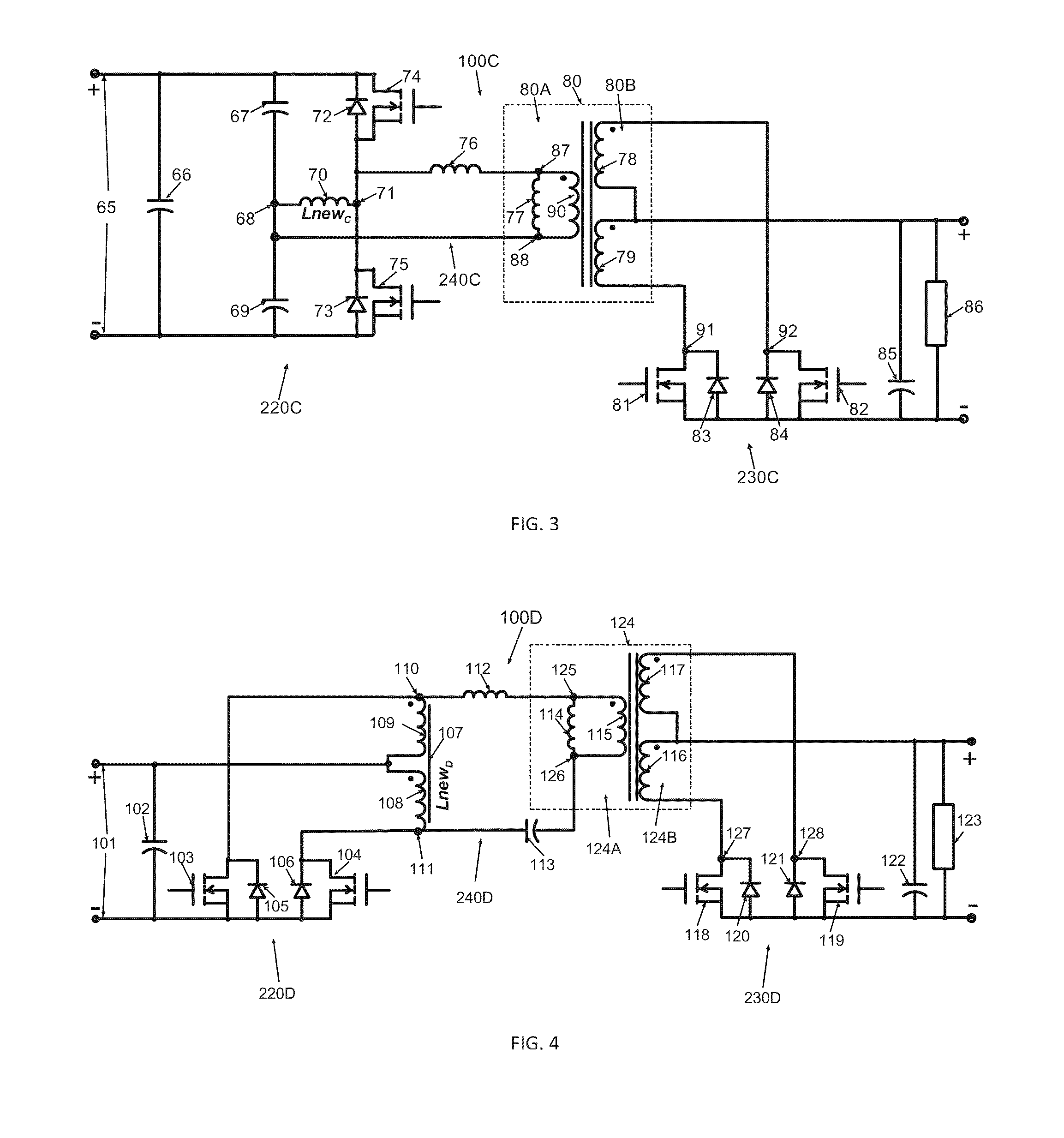Bi-directional power converter with regulated output and soft switching
a power converter and regulated output technology, applied in power conversion systems, electric variable regulation, instruments, etc., can solve the problems of adversely affecting the ability to achieve high power density and high power conversion efficiency, and significant switching losses, and achieve the effect of loss-less switching
- Summary
- Abstract
- Description
- Claims
- Application Information
AI Technical Summary
Benefits of technology
Problems solved by technology
Method used
Image
Examples
Embodiment Construction
[0044]In the following description, certain specific details are set forth in order to provide a thorough understanding of various embodiments of the invention. However, one skilled in the art will understand that the invention may be practiced without these details. In other instances, well-known structures have not been shown or described in detail to avoid unnecessarily obscuring descriptions of the embodiments of the invention.
[0045]A schematic of an example embodiment of the bi-directional converter 100A embodying the principles of the present invention is shown in FIG. 1. In the case of power transfer from the left hand side to the right hand side of the circuitry in FIG. 1, a full-bridge switcher circuit 220A containing controlled switching devices 4, 5, 6, and 7 that include embedded, or external, anti-parallel diodes 8, 9, 10, and 11 is connected to a DC voltage source 1. Switching devices such as switching devices 4, 5, 6, and 7 employed by the present invention can includ...
PUM
 Login to View More
Login to View More Abstract
Description
Claims
Application Information
 Login to View More
Login to View More - R&D
- Intellectual Property
- Life Sciences
- Materials
- Tech Scout
- Unparalleled Data Quality
- Higher Quality Content
- 60% Fewer Hallucinations
Browse by: Latest US Patents, China's latest patents, Technical Efficacy Thesaurus, Application Domain, Technology Topic, Popular Technical Reports.
© 2025 PatSnap. All rights reserved.Legal|Privacy policy|Modern Slavery Act Transparency Statement|Sitemap|About US| Contact US: help@patsnap.com



